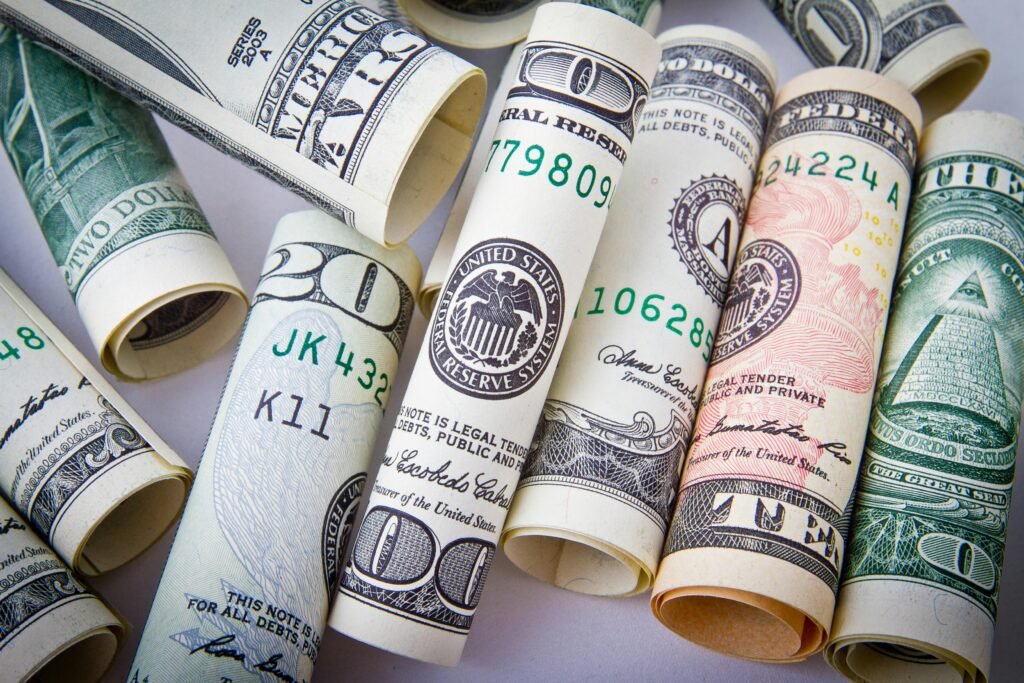Expense Control: Simple and Advanced Strategies to Save Money in 2025
Managing expenses is crucial for achieving financial stability and reaching personal goals. In 2025, with the ever-changing economy and new tools at our disposal, it’s possible to adopt both simple and advanced strategies to save effectively. This guide offers a set of practices that can be implemented to optimize your personal finances.
Assess Your Current Financial Situation
1. Assess Your Current Financial Situation (Expense Control)
Before starting any savings plan, it’s essential to understand your financial condition. List all income sources, such as salaries, freelance work, and other earnings. Then, record all monthly expenses, including fixed costs (rent, utilities) and variable costs (entertainment, food). Identify any debts and existing investments. This analysis will provide a clear view of where your money is going and help identify areas for potential cuts.
2. Set Clear Financial Goals
(Expense Control)
Establishing specific financial objectives is crucial for maintaining motivation and discipline. Divide your goals into short-term (up to two years), medium-term (three to five years), and long-term (more than five years). For example, a short-term goal might be to pay off a specific debt, while a long-term goal could be purchasing a home. Ensure your goals are specific, measurable, achievable, relevant, and time-bound.
3. Create a Detailed Budget
(Expense Control)
Develop a budget that reflects your income and expenses. Separate spending into categories such as food, transportation, housing, and entertainment. Assign a specific amount to each category and monitor regularly to ensure you stay within the established limits. Tools like spreadsheets or financial control apps can assist in this process, making tracking and necessary adjustments easier.

4. Use Financial Control Applications
(Expense Control)
Technology can be a great ally in financial management. There are several apps that help monitor spending, categorize expenses, and even create payment alerts. Some popular ones include Mint, YNAB (You Need A Budget), and PocketGuard. These tools offer features like detailed graphs, synchronization with bank accounts, and goal setting, making financial control more accessible and efficient.
5. Adopt the 50/30/20 Rule
(Expense Control)
An effective budget management strategy is the 50/30/20 rule. It suggests allocating 50% of your income to essential needs (housing, food, transportation), 30% to personal wants (entertainment, hobbies), and 20% to savings or debt repayment. This approach helps balance spending, ensuring that needs are met while still allowing for indulgences and prioritizing savings.
6. Reduce Unnecessary Expenses
(Expense Control)
Identify and eliminate unnecessary expenses. Small daily costs, like coffees, snacks, or subscriptions to services that aren’t frequently used, can add up over time. By cutting or reducing these expenses, you can save a significant amount by the end of the month. Regularly evaluate your subscriptions and cancel those that aren’t essential.

7. Plan Your Purchases
(Expense Control)
Before making purchases, especially larger ones, research prices and assess the actual need for the item. Avoid impulse buying, which can throw your budget off balance. A useful practice is the “30-day rule”: when you want to buy something non-essential, wait 30 days. If after that period you still feel the need for the item, consider the purchase; otherwise, avoid the expense.
8. Build an Emergency Fund
(Expense Control)
Establish an emergency fund to cover unexpected expenses, such as home repairs or medical costs. It’s recommended that this reserve be sufficient to cover three to six months of essential expenses. This provides financial security and prevents debt in unforeseen situations.
9. Invest in Financial Education
(Expense Control)
Seeking knowledge about personal finances is essential for making informed decisions. Participate in courses, read books, and follow blogs or podcasts on the subject. The more informed you are, the better you’ll be able to manage your money and identify opportunities for savings and investment.

10. Consider Additional Income Sources
(Expense Control)
Evaluate the possibility of generating extra income through freelance work, selling items you no longer use, or even monetizing hobbies. Additional income can accelerate the achievement of your financial goals and provide greater flexibility in your budget.
11. Automate Your Savings
(Expense Control)
Set up automatic transfers to your savings or investment accounts right after receiving your paycheck. This way, you ensure that a portion of your income is allocated to savings before it can be spent elsewhere. This approach helps create the habit of saving and facilitates the growth of your financial reserves.
12. Regularly Review Your Financial Plan
(Expense Control)
Financial life is dynamic, and your needs and goals can change over time. Regularly review your financial plan to ensure it still aligns with your objectives and make necessary adjustments. This includes reevaluating budgets, savings goals, and investment strategies.
By implementing these strategies, you can take control of your expenses and work towards a more secure and prosperous financial future in 2025. Remember, consistency and discipline are key to achieving your financial goals.
ntinuing with advanced strategies for expense control and savings in 2025, it’s essential to adopt approaches that go beyond basic practices. e strategies aim to optimize your personal finances by leveraging technological resources and investment opportunities to maximize financial efficiency.
- Leverage Tax Benefits and Incentives**
Stay formed about available tax deductions and credits that can reduce your tax burden. For ince, contributions to retirement accounts like 401(k)s or IRAs may be tax-deductible and offer tax-advantaged growth. Additioy, explore tax incentives for education, energy efficiency, or dependents, as applicable.
13. Inv in Continuous Financial Education
(Expense Control)
The financialandscape is constantly evolving, with new tools, products, and regulations emerging regularly. Participatin workshops, webinars, and online courses can keep you updated on best financial management practices. Following repue financial publications and consulting professionals can provide valuable insights for informed financial decisions.

14. Utilize Adced Expense Analysis Tools
(Expense Control)
Beyond basic budgetg apps, consider using advanced software that offers detailed analyses of your spending habits. These tools can idey spending patterns, forecast future expenses, and suggest areas for optimization. Some platforms offer ficial intelligence features that provide personalized savings recommendations based on your financial behavior.
15. Explore AlternatiInvestments
(Expense Control)
Diversifying your investmes can increase your return potential and reduce risks. Consider exploring optionse real estate investment trusts (REITs), peer-to-peer lending, or investing in startups, always aligned with your risk profile. It’s crucial to conduct thor research and preferably consult a financial advisor before venturing into alternative investments.
16. Negotiate Rates and Subsptions
(Expense Control)
Regularly review your subscriptio and recurring services, such as internet plans, phone services, and streaming platforms. Contact providers to negotiate be rates or look for more economical alternatives. Many companies offer discounts for -term customers or have promotions that can be applied upon request.
17. Practice Conscious Consumption*Adopt a more mindful approach to consumpon by assessing the real need for each purchase and considering the environmental and social impact. This not only reduces unnecessary expensut also promotes a more sustainable lifestyle. Participating in sharing or swapping commues can be an economical and ecological alternative for acquiring goods.

18. Set Challenging Savings Goals
(Expense Control)
Definavings goals that go beyond the conventnal, such as increasing your savings rate by a specific percentage each quarter or saving a fixed amount in discretionary spending categories. Challenges like a “no-spend month” can help idey waste areas and reinforce healthier spending habits.
19. Consider Passive Income Sources
(Expense Control)
Investinn assets that generate passive income canomplement your primary income and accelerate the achievement of your financial goals. This includes investments in rental properties, stocvidends, or intellectual property royalties. While they may require an initial investment, these sos can provide continuous cash flows with minimal effort after the initial setup.
20. Utilize Loyalty and Cashback Programs(Expense Control)
Take advage of loyalty programs offered by retailers andredit cards that offer cashback or points redeemable for products, discounts, or even cash. Ensure you understand the terms and conditions to maximize fits without incurring unnecessary additional expenses.
21. Regularly Review and Adjust Your Financial Plan
(Expense Control)
Finial life is dynamic, and your circumstances may change dueo factors like job changes, market conditions, or personal goals. Review your financial plan at least semi-annually to ensure it rns aligned with your objectives and make necessary adjustments to accommodate new realities or opportunities.
Implementing these advanced strategies requires discipline and cotnt, but the long-term benefits to your financial health can be significant. Remember, the key to financial success is continuous adaptation and alingness to learn and implement new approaches as the economic landscape evolves.Artigos e Guias:
- “5 Estratégias Simples para Economizar Dinheiro e Realizar Seus Objetivos”: Este artigo oferece dicas práticas para controlar gastos e alcançar metas financeiras.
- “Como Fazer Seu Planejamento Financeiro para 2025”: Um guia detalhado sobre como elaborar um planejamento financeiro eficaz para o próximo ano
- “Saiba Como Economizar Dinheiro em 2025”: Dicas sobre consumo consciente, investimentos e fontes de renda adicionais.
Para aprofundar-se no tema “Controle de Gastos: Estratégias Simples e Avançadas para Economizar em 2025”, recomendo o seguinte artigo:
- “Daily Expenses: Easy Methods and Advanced Strategies to Control and Save in 2025″: Este artigo oferece métodos práticos e estratégias avançadas para gerenciar e economizar nas despesas diárias.
Este recurso fornecerá uma base sólida para implementar estratégias eficazes de controle de gastos e economia em 2025.
Aplicativos de Controle Financeiro:
Para auxiliar na gestão de despesas, considere os seguintes aplicativos:
Mobills
Oferece gerenciamento de contas, receitas e despesas, além de ler notificações de bancos, automatizando o registro de gastos.
Vídeo Educativo:
- “Como Organizar as Finanças em 2025?”: Este vídeo oferece dicas práticas para planejar e controlar suas finanças pessoais.
Esses recursos fornecerão uma base sólida para implementar estratégias eficazes de controle de gastos e economia em 2025.

“Este conteúdo foi revisado e aprimorado com a assistência do SearchGPT, pela OpenAI.”
Share this content:




Post Comment